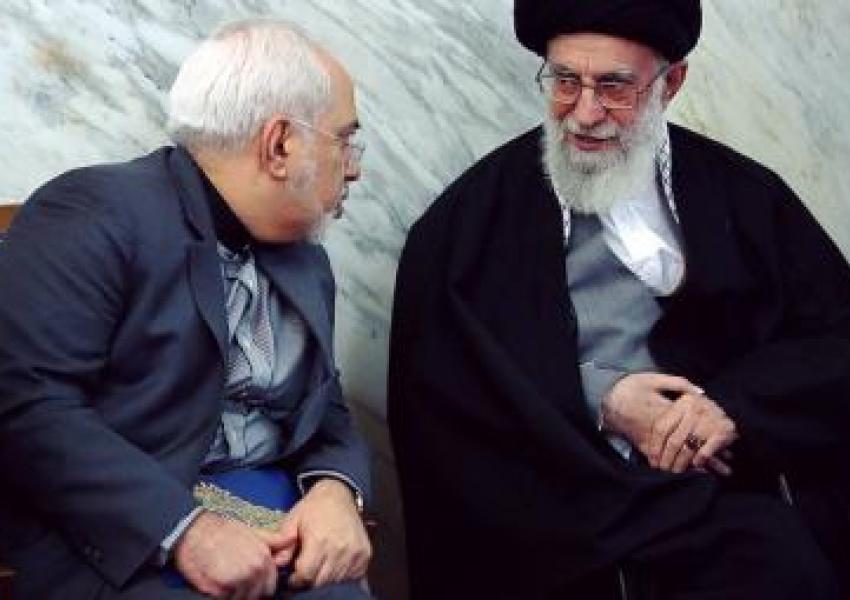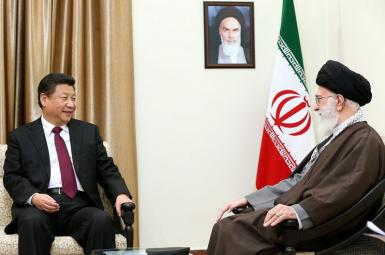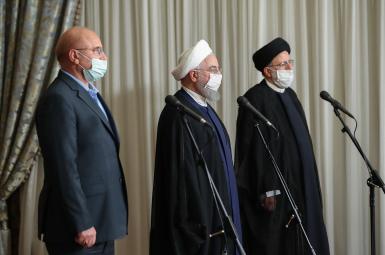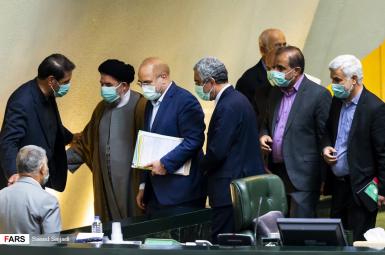
No Consensus On Talks With US At Top Level In Iran, Zarif Says
Foreign Minister Mohammad-Javad Zarif says there is no consensus among Iran’s top authorities regarding talks with the United States, but for Washington to rejoin the 2015 Joint Comprehensive Plan of Action or JCPOA requires no talks.
“Talks between Iran and the US requires consensus and agreement at top level,” Zarif said in a long interview with Hamshahri newspaper published on Saturday [February 6]. “In the present circumstances there is no such consensus on talks with the US and from the point of view of foreign policy, it is not right to enter this domain without consensus. United States’ re-entry in JCPOA requires no talks.”
There would be multilateral talks again within the framework of the JCPOA, if the US returned to the agreement, Zarif said.
Elsewhere in the interview, Zarif hinted that opponents of the current administration of President Hassan Rouhani “who want to have the government” stood in the way of direct talks with the new US administration. “[Consensus is required] so that they don’t constantly say the JCPOA has left the path of ill-use open for the United States.”
Iran has presidential elections due in June. Possible candidates include hardline Parliament Speaker Mohammad Bagher Ghalibaf (Qalibaf) and several Revolutionary Guards commanders. Zarif himself has been touted as a possible centrist candidate carrying on Rouhani’s approach, but he denied he wants to be a candidate and said his priority is reviving the nuclear agreement.
Following Rouhani’s election in 2013, Iran entered talks with world powers leading to the JCPOA in 2015 in the face of opposition from some principlists, who are now far stronger in Iranian politics.
In his Hamshahri interview, Zarif argued that foreign policy was decided “at the level of the system” – in other words, through a degree of top-level consensus with final word held by Supreme Leader Ali Khamenei. “The JCPOA was not the decision of one administration for the next administration to oppose it,” Zarif said. “Some of our friends said the JCPOA was a putrid corpse… [but] the system doesn’t say such a thing.”
Opponents of the JCPOA have long used such language. Hossein Shariatmadari, veteran editor-in-chief of the flagship Kayhan daily and long-term opponent of restricting the nuclear program, in an editorial note of February 2, 2017 asked Rouhani and his government why they were not “putting the putrid corpse [of the JCPOA] to rest” so that “new infections” did not spread.
Among symptoms of infection, Shariatmadari has named legislation allowing Iran to join the Financial Action Task Force, and Instex, a largely ineffective European special-purpose vehicle established in January 2019 to process transactions with Iran sidestepping US sanctions.









